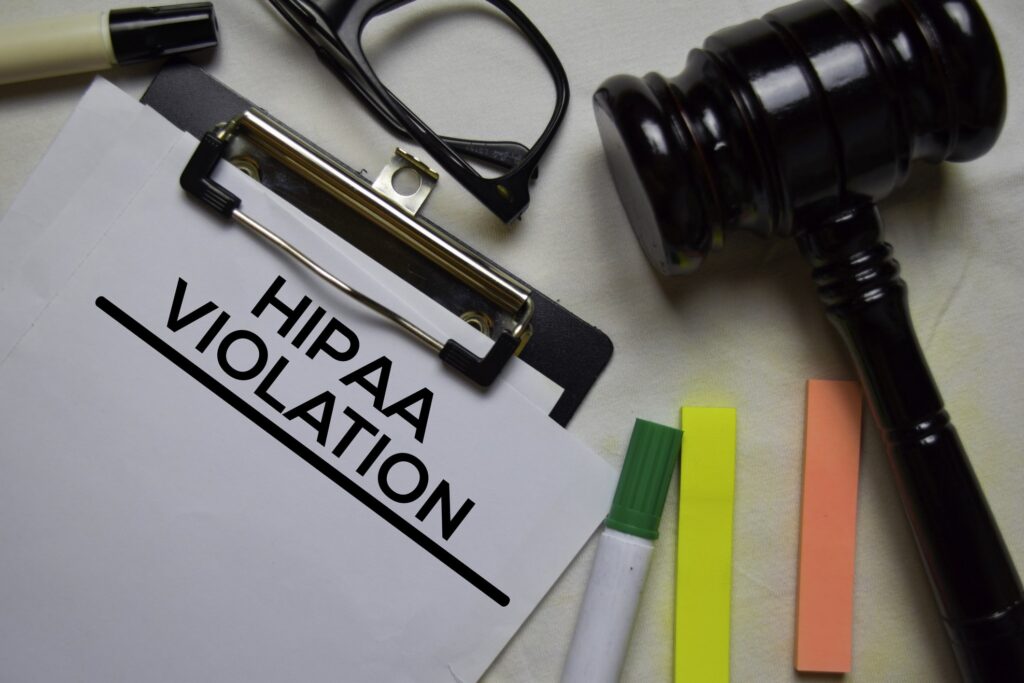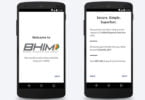Compliance with HIPAA regulations is paramount to safeguard protected health information (PHI). According to the HIPAA journal, more than 20 million medical records were breached just in the first half of 2022. This implies HIPAA regulations hold the utmost importance in healthcare operations.
HIPAA Violations: Examples and Consequences

Failure to comply with HIPAA regulations results in hefty penalties and punishments. Moreover, the loss of reputation and patients’ trust is even more damaging than financial losses. Let’s explore HIPAA violations in-depth, including HIPAA violation examples and best practices for covered entities to ensure their HIPAA compliance.
What is HIPAA Violation?
Health Insurance Portability and Accountability Act (HIPAA) is a piece of legislation that established rules and standards to protect medical records and other medical information. If an organization fails to comply with these rules and regulations, it undergoes HIPAA violations.
If healthcare employees leave their desk while having patients’ information on the desktop, they are violating HIPAA. Similarly, if any hospital discloses patients’ information to a third party without the patient’s consent, HIPAA violation is undergone. In case of intentional violations, covered entities are aware of the violations but still, they do not take measures to avoid such violations.
A HIPAA violation can also be unintentional. For instance, if any medical facility discloses too much PHI, violating HIPAA minimum necessary standard. However, the fines for such violations are less than the deliberate violations.
Along the same line, negligence can also result in HIPAA violations. For instance, an industry-wide risk assessment is crucial to ensure compliance which many organizations fail to complete due to negligence, resulting in financial sanctions.
Common HIPAA Violation Examples
HIPAA regulation applies to healthcare providers, health insurance companies, and employers. Here are some examples of HIPAA violations that are commonly witnessed in the healthcare sector.
HIPAA Violations by Employers
Healthcare workers can indulge in activities that can lead to the disclosure of PHI. For instance;
A worker takes a snap in an emergency room and shares it on social media and the people in the photo are recognizable
- A nurse shares the PHI of a patient with a radiology technician in a public place where they can easily be overheard.
- A worker shares a patient’s medical condition with his family members without getting authorization from the patient
- A healthcare staff worker delivers medical reports to the wrong patients due to the similarity of names.
- Any Healthcare professional releases unauthorized PHI. This implies the issuance of a document that is not yet finalized to release.
HIPAA Violations By Employers
Though employers do not directly provide healthcare services, they still handle the documentation work. Employees authorize their doctors to share their medical information with their employer for certain purposes, such as Family Medical Leave (FML), disability accommodation requests, excused absences, etc. The violation can occur if:
- The HR manager shares the employee’s PHI with any unauthorized person.
- If any benefits administrator logs in to access the employee’s PHI. he does not protect information from unauthorized access and the device gets stolen.
- An HR system allows employees to see PHI who have no legitimate reason to access it.
HIPAA Violations via Medical Records
Patient’s medical records need to be properly stored. The violation can take place, if;
- A healthcare worker does not follow data security standards and share PHI via public fax line or without encrypting the information.
- A worker does not discard patients’ information or employees’ PHI as recommended by the law.
- PHI is not properly stored and the device gets stolen, leading to serious data theft.
- A worker goes for a break while his laptop screen is displaying PHI which can easily be seen by unauthorized persons.
- An employee takes and shares a photo that contains a patient’s PHI.
Categories of HIPAA Violations
The Office For Civil Rights (OCR) tries to impose non-punitive measures to counter the violation. However, if the breaches are severe, have long-term impacts, or are repetitive, financial penalties become imperative.
The fine for a HIPAA violation depends on certain factors, these are;
- The duration of the violation
- Number of affectees
- Amount of data breached and its value
- Whether the violating entities cooperate with OCR
- Whether the violating entities have no history of non-compliance.
HIPAA violations are categorized into two types;
Civil Penalties for HIPAA Violation
This category of HIPAA violations covers unintentional data breaches, which further subdivides into four categories having different penalty structures.
| Category | Culpability | Minimum fine per violation | Maximum fine per violation |
| 1 | covered entities are unaware that HIPAA violation is taking place despite having a due diligence | $100 per violation | $50,000 |
| 2 | covered entities have a cause or should have been aware of violation by exercising a reasonable amount of care. | $1,000 | $50,000 |
| 3 | a deliberate neglect of HIPAA regulation has been made, however, efforts were made within 30 days of the violation to prevent it. | $10,000 | $50,000 |
| 4 | HIPAA rules are willfully neglected and no efforts were made within the reasonable timeframe to correct the violation. | $50,000 | – |
If any violation is occurring unknowingly, corrected measures could not be expected. Hence, financial penalties will be unreasonable. Therefore, OCR prefers non-financial punishments in case of non-deliberated breaches. However, wilful neglect is surely subject to financial penalties.
Criminal Penalties for HIPAA Violation
Besides these civil financial punishments, persons responsible for HIPAA violations can also face criminal charges. Criminal violations are also divided into 3 categories having different penalty structures. these are
| Category | Culpability | Punishment |
| 1 | Intentionally accessing and disclosing PHI without authorization | Maximum of 1 year imprisonment |
| 2 | Attaining PHI under false pretenses | Maximum 5 years imprisonment |
| 3 | Violating entities have malicious intents and have personal gains | Maximum 10 years imprisonment |
Best Practices to Avoid HIPAA Violations
HIPAA violations seriously harm an organization in both financial and non-financial terms. However, if due diligence is exercised, these damaging violations can be prevented.
- Never discuss patient information in public: It is common for busy nurses to relay information to coworkers in passing. These practices should be strictly forbidden.
- Don’t misuse technology: Technology has made data sharing easier but it entails a set of security risks. Therefore, never leave your portable devices unattended, do not share login credentials, or text patient information, instead, establish a centralized healthcare massaging platform and leverage it to avoid data theft.
- Double-check authorization: Always seek the patient’s authorization before disclosing his information to third parties. Moreover, you should develop protocols to check authorization before accessing PHI and medical records.
Take Away
HIPAA protects patient information during its storage and transfer in healthcare organizations. In case of non-compliance, covered entities have to face serious penalties and punishments as well as loss of reputation and integrity. If you unknowingly violate HIPAA regulations, financial penalties could be eliminated.
However, you can not escape financial losses and imprisonment if you intentionally disclose PHI or are practicing willful neglect. Therefore, the best would be to abide by the law and avoid any punishments that can compromise the growth of your organization.







Leave a Comment
You must be logged in to post a comment.